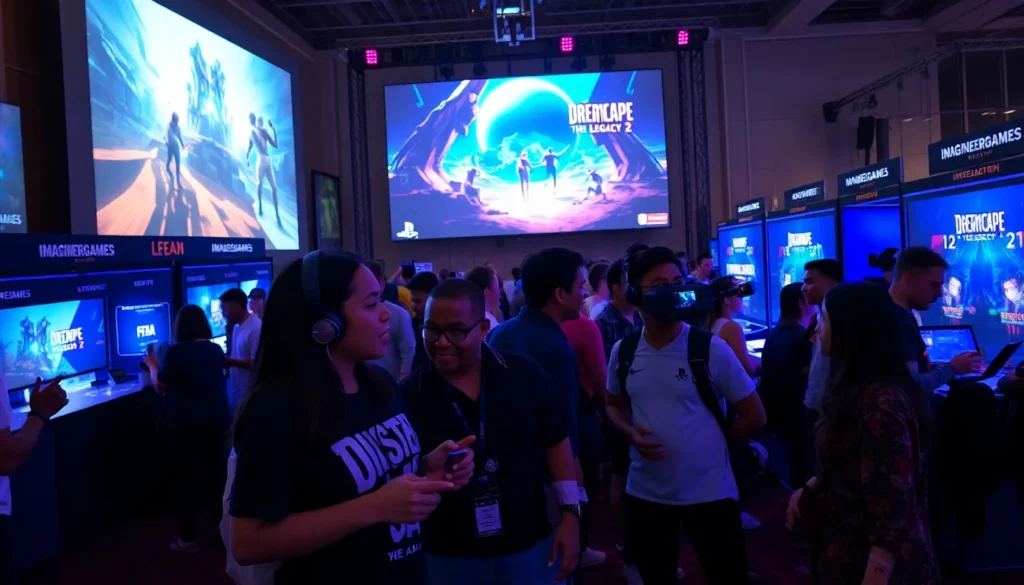Table of Contents
ToggleIn the ever-evolving digital landscape, blogging has emerged as an essential tool for building connections, sharing insights, and driving engagement within various domains. For event organizers and businesses alike, harnessing the power of a blog can elevate their brand presence and enhance audience interaction. This article delves into the key aspects of blogging, focusing on how it can benefit events, the content types that drive engagement, effective promotion strategies, performance analysis, and the need for strategy adjustments based on insights. Let’s explore how to optimize your blogging efforts to achieve maximum impact.
Understanding the Concept of Blogging

Blogging serves as a platform through which individuals and organizations can share their thoughts, experiences, and expertise on specific topics. It’s not just about writing: it’s about connecting with an audience and providing valuable content that resonates with them.
Benefits of Blogging for Events
For events, having a dedicated blog offers numerous benefits. First, it creates a space to inform and engage potential attendees, offering insights into the event’s purpose, speakers, and activities. This transparency fosters trust and builds excitement among prospective participants.
Also, a blog serves as a repository for event-related content, including recaps and highlights, which can keep the conversation going even after the event concludes. In essence, a blog not only advertises the event but can also enhance the overall experience for participants.
Creating a Strong Online Presence
A consistent blogging practice helps in establishing a solid online presence. By regularly publishing high-quality content, organizations can strengthen their brand identity, positioning themselves as thought leaders within their industry. Over time, this can lead to increased traffic to the website, higher brand recognition, and eventually, improved conversion rates for events.
Types of Content to Share on Your Blog
The content shared on a blog can vary widely, but some specific types stand out when it comes to engaging an audience effectively.
Engaging Your Audience Through Storytelling
Storytelling has a unique power to captivate audiences. By weaving narratives around experiences related to events, such as attendee testimonials, behind-the-scenes glimpses, or the journey of planning an event, bloggers can create relatable and memorable content. This kind of storytelling not only offers a human touch but can also stimulate emotions and encourage potential attendees to connect with the event on a deeper level.
Tips for Writing Compelling Blog Posts
To craft captivating blog posts, it’s essential to keep a few key tips in mind:
- Know Your Audience: Understanding the interests and needs of your target demographic will help tailor the content accordingly.
- Use Clear and Concise Language: A well-structured post with clear headings and bullet points makes it easier for readers to digest information.
- Include Visual Aids: Images, videos, and infographics can make posts more engaging and visually appealing.
How to Promote Your Blog Effectively
Promoting a blog is just as crucial as creating content. The right strategies can significantly enhance visibility and engagement levels.
Utilizing Social Media Platforms
Social media platforms are a powerful medium for promoting blog content. Sharing snippets of posts along with engaging visuals can draw users’ attention back to the full article. Also, platforms like Instagram, Facebook, and Twitter allow for direct interaction with the audience, facilitating a two-way dialogue that can enhance connections and broaden reach.
Collaborating with Influencers in Your Niche
Partnering with influencers can dramatically increase your blog’s visibility. Influencers often have established audiences that trust their recommendations. By collaborating with them to share your blog posts, you tap into their reach and credibility, which can attract a new audience to your site.
Analyzing Your Blog’s Performance
Once a blog is established, analyzing its performance is vital to ensuring continued growth and engagement. Several tools and metrics can provide insights into how well your blog is performing.
Tools for Tracking Engagement and Growth
Using tools like Google Analytics allows bloggers to track metrics such as page views, bounce rates, and user demographics. These insights can inform decisions about what content resonates most with the audience and identify areas for improvement. Also, examining social media engagement metrics can help gauge the effectiveness of promotional strategies.
Adjusting Your Strategy Based on Analytics
Using the data gathered from analytics, bloggers can make informed decisions to adjust their strategies. If certain types of posts are consistently underperforming, it may be time to re-evaluate the content strategy. Conversely, if particular topics or formats yield high engagement, these can be explored further to maximize audience interest and participation.
Conclusion
To conclude, a blog can be a powerful asset for event organizers aiming to build engagement, drive attendance, and foster community. By understanding the fundamental aspects of blogging, from crafting engaging content to implementing effective promotional strategies and analyzing performance, organizations can leverage this medium to create meaningful connections with their audience. It’s not just about sharing information, it’s about building relationships that last beyond the event itself, paving the way for future engagements.




